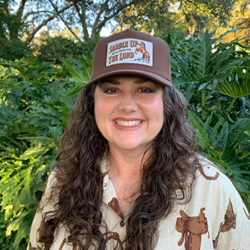 One of my favorite books about retirement is “How to Retire the Cheapskate Way,” by Jeff Yeager. I read it years before I became a financial advisor after having a conversation with a friend where we questioned something we had heard about needing $2.3 million to retire comfortably.
One of my favorite books about retirement is “How to Retire the Cheapskate Way,” by Jeff Yeager. I read it years before I became a financial advisor after having a conversation with a friend where we questioned something we had heard about needing $2.3 million to retire comfortably.
Yeager is a self-proclaimed cheapskate. He admits to riding his bike to his local car wash and, using an old portable radio antenna, fishing out spare change stuck beneath the vacuum cleaner stations. Although that sounds a bit extreme to me, his book is full of other ideas for how to “simple-size” your retirement by revealing areas where you can cut costs and even earn a bit of extra income in retirement.
I’m all for hunting for change if it’s fun for you, but my desire is to help ensure clients never do that out of necessity.
 Fact: Some people have more expensive lifestyles than others. The same is true for retirement goals. When financial gurus declare an amount that every individual must save to fully fund retirement, they sometimes neglect to mention that this won’t be accurate for everyone.
Fact: Some people have more expensive lifestyles than others. The same is true for retirement goals. When financial gurus declare an amount that every individual must save to fully fund retirement, they sometimes neglect to mention that this won’t be accurate for everyone.
Some people want to travel the world when they retire. Others just want to be on their back porch with coffee or a cocktail in hand. Some folks dream of moving to a retirement community for an active retirement lifestyle. Others simply want to remain in the house they paid off as long as they can.
How to Know What You’ll Need in Retirement
The best way to determine your financial needs in retirement is to have a financial advisor create a plan for you.
Here’s the type of information needed to build an accurate financial plan for a client:
- Your DOB
- Your annual income
- Your ideal retirement age
- Your current monthly living expenses
- Retirement goals (weddings, education, travel, etc.)
- Other income (Social Security, pension, rental property, etc.)
- Recent statements for all retirement accounts
- Assets list
- Liabilities list
 We input this information into our planning software and it helps provide an idea of whether you’re on track in working toward your goals. The earlier you can get a plan in place, the better. If the plan shows that you need to make changes to increase your probability of having enough money in retirement, it’s better to know that 10 years before you retire, instead of two years. You have more time to course-correct.
We input this information into our planning software and it helps provide an idea of whether you’re on track in working toward your goals. The earlier you can get a plan in place, the better. If the plan shows that you need to make changes to increase your probability of having enough money in retirement, it’s better to know that 10 years before you retire, instead of two years. You have more time to course-correct.
I love creating financial plans for people because of the useful information they provide. I’ve always told clients the plan either provides peace of mind that you’re on target, or a blueprint for how to improve your probability of success in accumulating enough money for retirement.
Please reach out if I can do a financial plan for you.
October 2025




